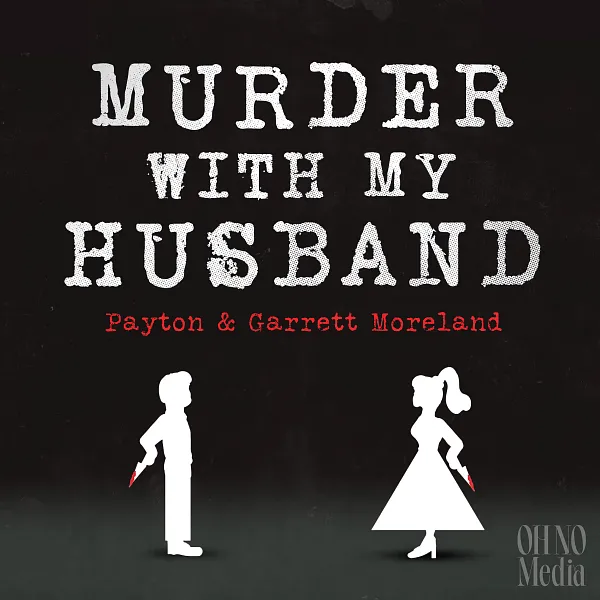From podcasts to documentaries to long-running TV shows like “Dateline,” the true crime genre entertains and informs through gruesome and heart-wrenching stories.
But the popularity of the genre begs the questions: Why is such a violent topic ingested by so many, and how is this enjoyment affecting psyches and our culture? Eager to find answers, researchers are delving into the psychological motivation for true crime fans, the ways online participants can harm ongoing cases and whether it is wrong to enjoy this content.
One professor at the UO School of Journalism and Communication (SOJC) brings it all to the classroom, teaching students to examine the ethics of consuming true crime stories. Whitney Phillips, assistant professor of digital platforms and ethics, has written and researched extensively on internet trolling, malicious online activity and the ethical implications of popular culture subjects such as the true crime genre. She teaches J-397 Media Ethics with a focus on the cultural and historical impacts of true crime.
“It wasn’t that I set out to create a class about focusing on the harms of true crime,” said Phillips. “It was how do we use true crime to think about these really important ethical issues that everyone in the room is going to have to deal with in a professional capacity.”
Why the true crime genre is popular
Phillips defines true crime as content about violent, nonfictional events that have specific characteristics that make it popular as entertainment. She teaches three reasons why people are drawn to true crime as entertainment:
- Viewers enjoy the mystery element. Novels and movies centered around a mystery have always proved popular, but true crime allows audience members the chance to feel invested in a real mystery unfolding before them.
- Many enjoy watching a case getting solved while feeling that they’ve participated in it from the comfort of their couch.
- Studies of true crime have found that white women are the largest demographic that enjoys the true crime genre. The hypothesis is that because “women, in particular, have anxiety about potential threats,” they turn to true crime to feel better prepared if something violent were to happen to them. One piece of research that Phillips uses in Media Ethics confirms the theory through studies that examine women’s consumption of nonfiction violent media and why it is higher than men's.
Why ethics matter in the true crime genre
Phillips also teaches the ways true crime can be potentially harmful and unethical. For example, often the victims in the stories shared are white and female, likely because the target audience is white women, and they tend to prefer to listen to cases they can insert themselves into. Phillips argues that this creates the idea that there is “only one type of victim” and that they are the only people whose stories are worth paying attention to.
This is then reinforced in news media, with updates and stories about searches for white female victims filling airtime, while stories about marginalized groups like Indigenous women are rarely aired, if at all. This disparity is something Phillips says is a dangerous consequence of the true crime genre because it tells audiences that only one type of victim’s story matters.
“You have a certain kind of victim, a certain kind of story, a certain kind of perspective,” said Phillips. “And that’s the thing that gets repeated over and over. And because it gets repeated, that’s what people are familiar with.”
Phillips adds that many missing white women also don’t fit the criteria for coverage if they are not the “right” type of victim. For example, sex workers who are murdered or missing often are not considered a “good enough story” because the media’s perception is that they aren’t cared about as much as “innocent” white women.
Phillips also finds the idea of commoditizing true crime troubling. Podcasts like “My Favorite Murder” or “Murder with My Husband” create catchphrases and sell merchandise inspired by their shows and real-life cases. In doing this, they are reducing victims' lives and tragedies to marketable content. This branding of real violence and victims dehumanizes them by turning them into merchandise and memes.
According to Phillips, this casual conversation around true crime and its victims has also fostered the rise of citizen sleuths. These fans frequent online spaces like Reddit or TikTok to discuss ongoing cases and post about their own theories and opinions, which are often not backed up by fact. They can be harmful because they often promote poor leads that distract the investigation.
Even worse, some have named innocent people close to the victim as suspects in a case and sent their online following to harass a person who is still grieving a devastating loss. Phillips says it’s very easy for some people to fall into the trap of thinking it’s just a fun game to play, but they don’t have all the information and aren’t considering the ethical issues.


“My Favorite Murder” and “Murder with My Husband” are popular true crime podcasts discussed in Assistant Professor Whitney Phillips’ class, J-397 Media Ethics, which focuses on the ethical considerations of the true crime genre.
Why a class around the true crime genre matters
So why did Phillips choose such a gritty topic as the focus of the Media Ethics course? She said she wanted to find a topic that would prove beneficial to all budding communication professionals, no matter their individual major, within the tight timeframe of 10 weeks. She also wanted to highlight three key topics: ethics of amplification, ethics of representation and ethics around the audience. She realized that by centering her class around true crime, she could dive into each of those topics and into how communication professionals should approach human stories, recognizing who is telling the story and whose stories are not being told.
Phillips emphasizes that her class does not declare all true crime to be “bad” or shame those who enjoy the genre. Instead, she sets out to explore the ways true crime can be important in discussing disparities in race and gender while examining how the genre has been made a staple of popular culture.
“True crime isn’t the problem,” Phillips said. “It’s how people approach it, who is telling the story and whose stories are not being told that’s the problem.”
Phillips also uses research on positive and negative sensationalism conducted by fellow SOJC professor and media studies department head Gretchen Soderlund to further explore these topics in her classroom while teaching students how to remain ethical as communications professionals.
Phillips stresses the importance of reflecting on the stories one consumes with an ethical lens, recognizing whose stories are being told the most and remembering that behind the memes and commoditization, there are still human victims and grieving families at the heart of every true crime case.
Students interested in learning more about the ethics around the true crime genre can check UO’s class schedule and search under Journalism for J-397 Media Ethics.
While this class is open to all majors, media studies is one of four SOJC majors. Visit the media studies page to learn more about the program.
—By Jillian Gray, class of ’25
Jillian Gray is majoring in public relations with a minor in digital humanities. She works as an intern for the SOJC Communication Office’s social media and editorial team. To connect with Gray, visit her LinkedIn profile.
